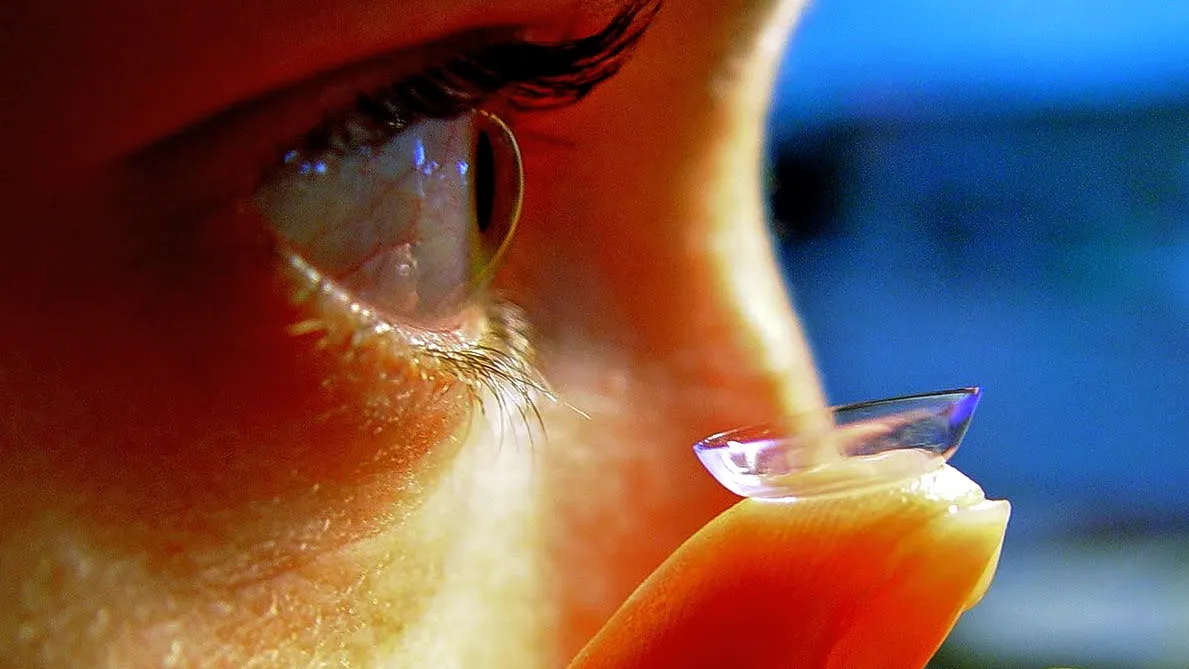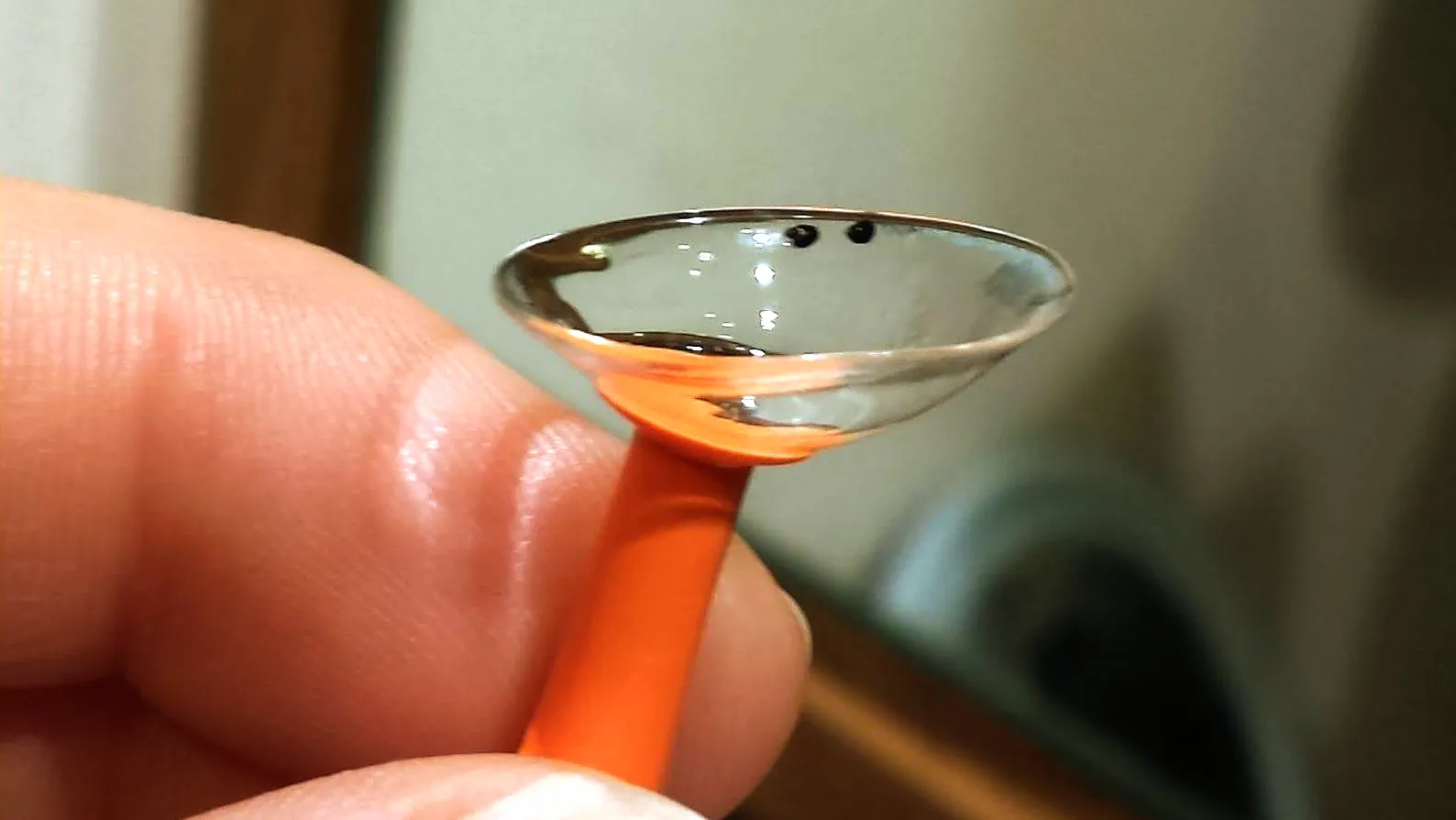
If you have keratoconus, you may have experienced difficulties with your vision and finding the right eyewear. Keratoconus is a condition that causes the cornea, the clear front surface of the eye, to become thin and cone-shaped. This affects how light enters the eye and creates distorted and blurry vision.
One of the most common ways to correct vision problems caused by keratoconus is to wear contact lenses. Contact lenses can provide better vision than glasses by conforming to the shape of the cornea and creating a smooth surface for light to pass through.
However, not all contact lenses are suitable for keratoconus. Depending on the severity and progression of your condition, you may need a specific type of contact lens that fits your cornea and meets your visual needs.
Fortunately, there are several types of contact lenses that are specially designed to correct your vision and fit your irregular cornea. In this blog post, we will explore the different types of contact lenses for keratoconus.
Rigid gas permeable (RGP) lenses:
These are hard lenses that create a smooth surface over the irregular cornea, providing clear vision. They are often the first option for keratoconus patients with mild to moderate cases.
Some advantages of RGP lenses are that they are easy to put in and out, easy to look after, durable, and resistant to deposits. Some disadvantages are that they may feel uncomfortable at first, they may move or dislodge easily, they may cause corneal abrasions or infections if not fitted properly, and they may not correct high levels of astigmatism.
Some brands of RGP lenses for keratoconus are Boston XO2 (Bausch + Lomb), Paragon CRT (Paragon Vision Sciences), Rose K2 (Menicon), and Soper (Lens Dynamics).
Hybrid lenses:
These are lenses that have a rigid gas permeable center surrounded by a soft skirt. They combine the benefits of both RGP and soft lenses by providing clear vision and comfort. They are suitable for keratoconus patients with mild to moderate cases.
Some advantages of hybrid lenses are that they offer crisp vision, comfort, stability, centration, and oxygen permeability. Some disadvantages are that they may be difficult to insert and remove, they may cause dry eyes or irritation from the edge of the lens, they may be expensive, and they may require special care products.
Some brands of hybrid lenses for keratoconus are SynergEyes KC, ClearKone, and UltraHealth (SynergEyes).
Soft toric lenses:
These are soft lenses that have different powers along different meridians to correct astigmatism. They are usually prescribed for keratoconus patients with mild cases or as a temporary option before other treatments.
Some advantages of soft toric lenses are that they are comfortable to wear, easy to adapt to, and stable on the eye. Some disadvantages are that they may not provide sharp vision, they may rotate on the eye causing blurred vision, they may not correct high levels of astigmatism or irregularity, and they may require frequent replacement.
Some brands of soft toric lenses for keratoconus are KeraSoft IC (Bausch + Lomb), NovoKone (Alden Optical), Biofinity Toric XR (CooperVision), and Acuvue Oasys for Astigmatism (Johnson & Johnson).
Scleral lenses:
These are large-diameter rigid gas permeable lenses that vault over the entire cornea and rest on the white part of the eye (sclera). They create a fluid reservoir between the lens and the cornea, which helps hydrate and protect the eye. They are ideal for keratoconus patients with moderate to severe cases, or those who cannot tolerate other types of lenses.
Some advantages of scleral lenses are that they provide excellent vision, comfort, stability, and oxygen permeability. Some disadvantages are that they may be difficult to insert and remove, they may require more care and cleaning, they may be expensive, and they may cause complications such as infection or hypoxia if not fitted properly.
Some brands of scleral lenses for keratoconus are Zenlens (Bausch + Lomb), Jupiter Scleral (Essilor), BostonSight PROSE (Boston Foundation for Sight), and Onefit MED+ (Blanchard Contact Lenses).

The best type and brand of contact lens for keratoconus depends on several factors such as your prescription, your eye shape, your lifestyle, your budget and your personal preference. You should consult with your eye doctor (ophthalmologist or optometrist) who can examine your eyes, measure your corneal curvature, recommend suitable options for you and fit you with custom-made contact lenses if needed.
Keratoconus is a challenging eye condition that can affect your vision and quality of life. However, with the right contact lenses, you can improve your vision and comfort and enjoy your daily activities. There are different types and brands of contact lenses available for keratoconus, each with its own advantages and disadvantages. You should consult with your eye doctor who can help you find the best option for your eyes and fit you with custom-made contact lenses if needed. Contact lenses for keratoconus can make a big difference in your vision and well-being. Don’t let keratoconus stop you from seeing the world clearly!
